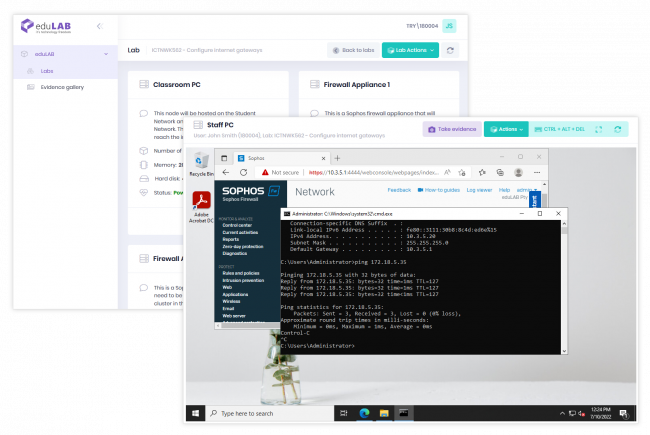Maximising Hands-on Training through Virtual Technology
Delivering Information Technology smartly

Virtual Technology offers amazing opportunities for meaningful IT training.
It must be understood that Information Technology training requires a hands-on component.
Theory alone does not get it done.
However, private learners likely do not have access to the full range of IT networks, devices and systems they need to build their proficiency.
And employers may not be willing to risk letting staff practice on their live systems due to operational demands or potential for problems.
So how do you deliver the opportunity to learn and practice complex IT skills safely via distance?
The answer is virtual technology.
ACCM College has partnered with eduLAB, a cloud-based virtual learning platform, to create immersive learning and testing labs that allow IT trainees to develop, practice and hone their skills in a safe environment.
This means both learners and employers do not need to source expensive IT applications for training and there is zero risk to their live / active networks.
VIRTUAL TECHNOLOGY ALLOWS LEARNERS TO MASTER CRITICAL SKILLS SUCH AS:
- Manage Active Directory accounts
- Troubleshoot and resolve problems
- Run diagnostic tools and programs
- Maintain network and data security
- Install and configure virtual networks
- Configure internet protocols
- Install, manage & troubleshoot servers
- Network configuration and administration
- Installation and set-up of operating systems
and many other valuable skills...
HELP IS AVAILABLE
Our experienced Student Advisers are able to:
- Offer a wide range of coaching and support via phone, email and video
- Reset eduLAB labs if you run into problems (no costs involved)
- Log into your Lab and help you determine what's gone wrong
- Stay in touch with you to help you keep progressing to your goal.
